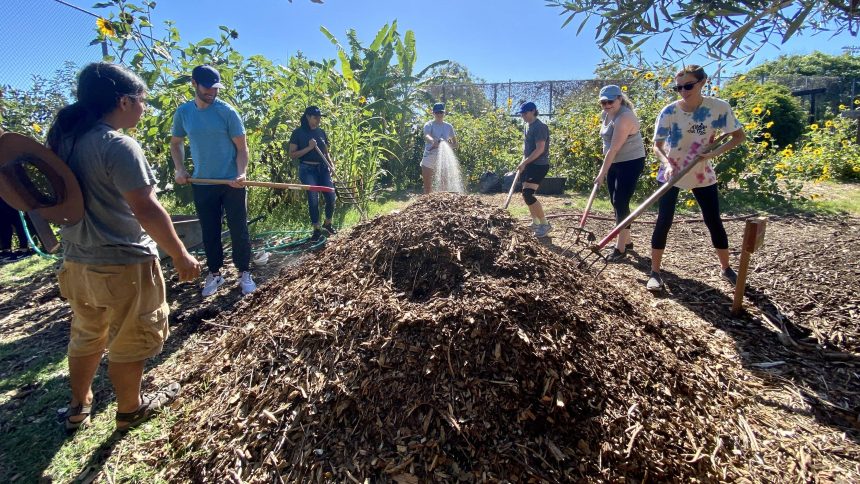Reporting for this story was made possible by the Climate Equity Reporting Project at the UC Berkeley Graduate School of Journalism.
In the early years following Monique Figueiredo’s establishment of Compostable LA in 2019, the business experienced rapid growth. Providing food scraps pickup services to a variety of clients, from individual homes to large corporations like Walmart and Nike, the company delivered the waste to urban farms and community gardens for high-quality composting. With over 1,000 customers in Los Angeles, Compostable LA had a significant impact on diverting food waste from landfills and educating communities about the benefits of composting.
However, in 2022, the implementation of SB 1383 in California changed the landscape. The law required cities to contract with large waste hauling companies for curbside collection of food scraps, alongside garbage and recycling. While this measure aimed to reduce organic waste in landfills, it had unintended consequences for community composting operations like Compostable LA. Customers began canceling memberships as the city bundled waste services, making it more expensive for individuals to maintain multiple subscriptions.
As a result, Compostable LA had to cease its residential services in 2024, laying off staff and facing an uncertain future. Despite efforts to advocate for inclusion in waste management policies, Figueiredo expressed weariness about the business’s viability in the current landscape.
The story of Compostable LA reflects larger shifts in California’s waste management industry. While SB 1383 has increased access to food and yard waste collection across the state, it has also marginalized community composting initiatives. Supporters argue that community composting offers environmental benefits, including high-quality compost and educational opportunities, which industrial operations may lack.
Despite challenges, community composting has gained traction nationwide in recent years, backed by significant government support. California’s Inflation Reduction Act and federal funding from initiatives like the American Rescue Plan Act have injected resources into these programs, offering potential for growth. However, concerns remain about the impact of industrial waste management on smaller, community-based composting efforts.
In Los Angeles, organizations like LA Compost have stepped in to fill gaps left by larger waste haulers. Through partnerships, grants, and volunteer efforts, these groups continue to offer composting services and education to underserved communities, emphasizing the importance of local, sustainable solutions.
Overall, the story of Compostable LA and the broader community composting movement underscore the importance of inclusive waste management policies that support local initiatives alongside larger industrial systems. The ongoing dialogue between stakeholders in the waste industry will shape the future of composting practices and environmental sustainability in California and beyond.






